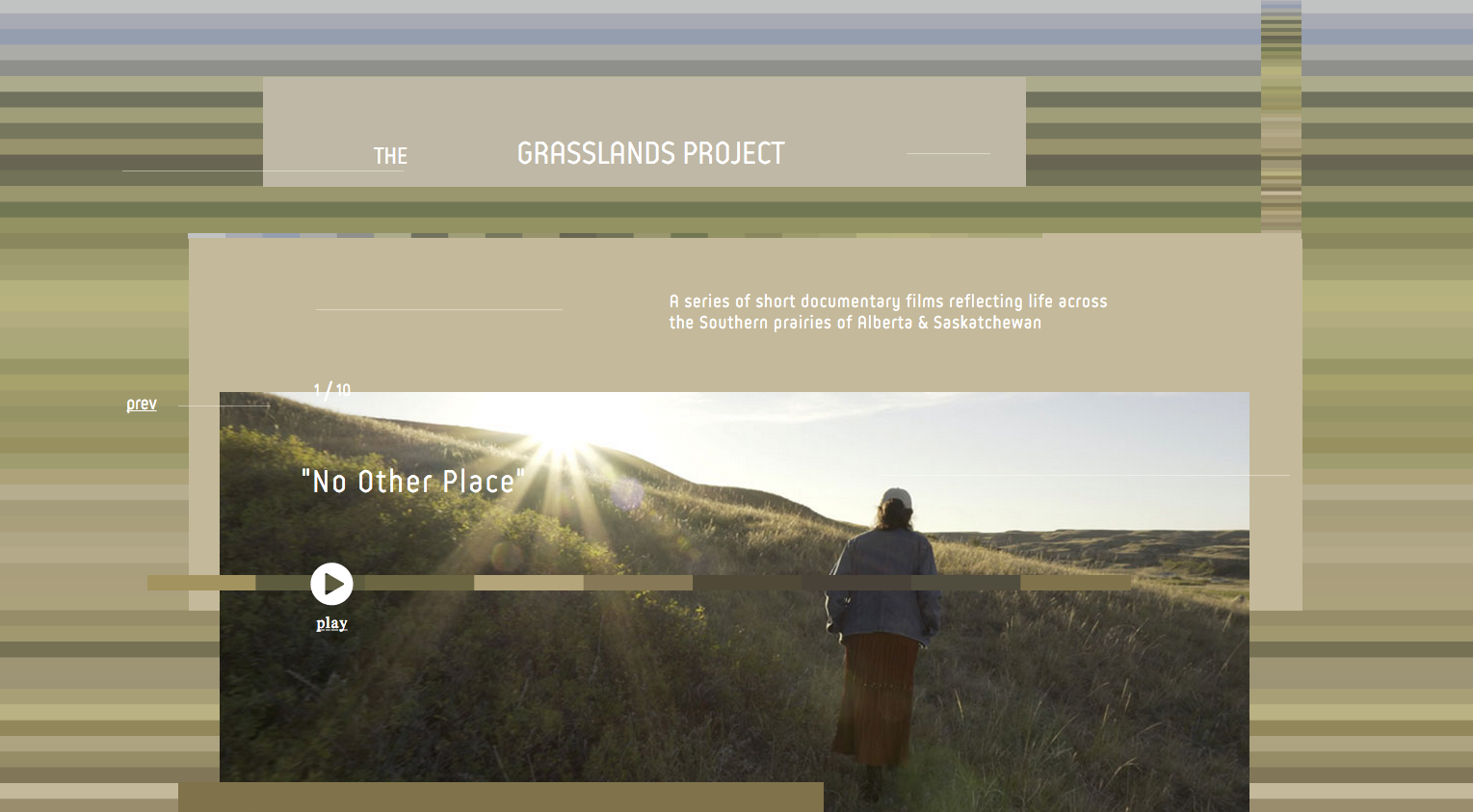Southern stories told on film
National Film Board heads to Saskatchewan and Alberta’s grasslands to capture local experiences.
By Tennessa Wild for The Western Producer
It began as a conversation over breakfast and ended in 10 short films encompassing the richness of rural communities across southern Alberta and Saskatchewan.
David Christenson, executive producer of the National Film Board Northwest Centre, was exploring options to capture stories of the remote grassland area.
Scott Parker offered his services, and in February 2015, the two men set off.
“We were down for about 10 days tops, talking to various groups of people in the Prairies about what stories are important to them, so that’s how it all started,” said Parker.
The Grasslands Project was funded through the NFB to showcase the culture and lives of those from the southern Prairies.
Christenson and Parker held 10 community meetings before film production began.
“David and I went through, and I wrote down all of the input at the community meetings. We got letters, we got emails, we went through all of this information looking for themes,” he said.
The prominent themes then became the films. The decline of the family farm, small town growth, prairie landscapes and the roles of women were among the ranked choices.
“We just went down to talk to people and find out … what are the stories that they’re interested in having told, and then eventually about a year ago I went out to live in Eastend while I tracked down these films,” said Parker.
The completed films were screened in May at nine local locations across the region.
“One of (NFB’s) mandates is to reflect Canadians back to themselves and to the rest of Canada and in fact around the world,” said Parker.
“The feedback has all been overwhelmingly positive, so we definitely accomplished what we were setting out to do.”
One film, which told a story of hope and the process of passing the Catherwood family farm down to the next generation, generated a lot of attention.
“With the Catherwoods, those people ended up being specific examples of the stories that many community members wanted us to tell,” he said.
“On the one hand, we would show the decline of the small family farm … but then we go to another film, Generations, which shows this energetic intelligent young man who’s saying, ‘I want to love farming just as much as my father has,’ ” said Parker.
Shawn and Ken Catherwood of Ceylon, Sask., starred in the short film titled Generations, which was about the passing on of the family farm.
“There’s still that pure bloodline of family farms around. Some people think there’s no such thing as small farmers anymore, but there still is to a certain degree,” said Shawn Catherwood.
“If you have a family that cares enough, then it can still survive in this large industry.”
Catherwood is studying agrology at the University of Saskatchewan and is already farming part-time and affecting decisions on the family farm.
“I think it’s important … to show that people still care about, like our film specifically, passing farms on from generation to generation, that there still are farms out there that want to do that,” he said.
Parker said Generations struck a chord with audiences attending the premieres.
“That story is going to live on forever because of their generosity. We’re all really grateful for that,” said Parker.
“We’ve seen a lot of farms get consolidated and a lot of families move away and young people move away, and it was a real breath of fresh air for especially farmers and ranchers to see. ‘Look, this young person is part of the future of agriculture, we do have a future.’ It’s young people like Shawn Catherwood that are that future,” he said.
Parker said the project was the highlight of his career, and he is going to miss the experience.
“When somebody gives you the gift of their story, you better well be good at making that film because they’re really opening up to you like the Catherwoods opened up so much to me. It was beautiful, so we ended up with 10 beautiful films.”
The films are accessible on the NFB website. Parker also expects them to circulate at upcoming festivals and be entered for awards.
“I’d love for some of these films to win a few awards so that we can all share in that.”
This story was originally published by the The Western Producer and is republished here with the author’s permission.
Tenessa Wild is a Masters student at the University of Regina School of Journalism. She has just completed an investigation into the 2012 BC Inquiry initiatives suggested for missing and murdered women in northern BC. She completed a 2016 internship with The Western Producer and continues to freelance for that publication.

